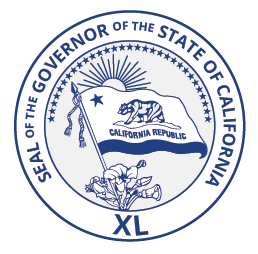Yesterday, October 10, 2019, Governor Newsom signed 15 new employment related bills. The Governor has until October 13 to sign or veto all bills on his desk. My firm will be hosting a seminar in November discussing all of the new laws facing California employers in 2020 and actions that employers need to take in response to these developments. To receive information about the seminar, make sure you are subscribed to our newsletter (click here for registration). Here are four of the most significant bills, and an overview of the other bills, all of which will have a powerful impact on employment practices moving forward:
Existing law prohibits any form of harassment based on a protected category, such as race, gender, sexual orientation, age, religion, disability and other categories protected under California law. Currently, the law requires a person claiming to be aggrieved by alleged workplace harassment to file a verified complaint with the Department of Fair Employment and Housing (DFEH) within one year from the date of occurrence. AB 9 extends that deadline to 3 years.
2. AB 51 – Places prohibitions on arbitration agreements
AB 51 prohibits employers from requiring any applicant for employment or any employee to waive any right, forum, or procedure under the California Fair Employment and Housing Act (FEHA) or the Labor Code as a condition of employment, continued employment, or the receipt of any employment-related benefit. AB 51 is California’s renewed attempt to outlaw the practice of employers requiring employees to submit to binding arbitration. Whether AB 51 is preempted by the Federal Arbitration Act is something to be monitored closely.
3. SB 688 – Expands Labor Commissioner’s authority to pursue wage claims
SB 688 expands the enforcement abilities of the Labor Commissioner. Previously, the Labor Commissioner could only enforce actions for violations alleging unpaid minimum wages. SB 688 now provides the Labor Commissioner with authority to issue citations for violations of unpaid wages that were less than the wage set by contract in excess of minimum wage.
4. AB 673 – Permits employees to recover civil penalties for unpaid wages
AB 673 gives employees the right to recover civil penalties for unpaid wages. These civil penalties were previously enforceable only through an action by the Labor Commissioner. Now, the employee is entitled to recover $100 for each initial violation for failure to pay each employee, and for a “subsequent violation, or any willful or intentional violation” of $200 for each failure to pay. Employers will also be liable for 25% of the amount unlawfully withheld for certain Labor Code violations. AB 673 limits employee recovery to statutory penalties or civil penalties under the Private Attorney’s General Act (“PAGA”), but not both, for the same violation.
5. Other employment related bills signed by the Governor
- AB 35 by Assemblymember Ash Kalra (D-San Jose) – Worker safety: blood lead levels: reporting.
- AB 203 by Assemblymember Rudy Salas (D-Bakersfield) – Occupational safety and health: Valley Fever.
- AB 355 by Assemblymember Tom Daly (D-Anaheim) – Public Employment Relations Board: Orange County Transportation Authority.
- AB 538 by Assemblymember Marc Berman (D-Palo Alto) – Sexual assault: medical evidentiary examinations and reporting.
- AB 547 by Assemblymember Lorena Gonzalez (D-San Diego) – Janitorial workers: sexual violence and harassment prevention training.
- AB 1400 by Assemblymember Sydney Kamlager-Dove (D-Los Angeles) – Employment safety: firefighting equipment: mechanics.
- AB 1748 by Assemblymember Rob Bonta (D-Alameda) – California Family Rights Act: flight crews.
- AB 1768 by Assemblymember Wendy Carrillo (D-Los Angeles) – Prevailing wage: public works.
- SB 142 by Senator Scott Wiener (D-San Francisco) – Employees: lactation accommodation.
- SB 229 by Senator Robert Hertzberg (D-Van Nuys) – Discrimination: complaints: administrative review.
- SB 530 by Senator Cathleen Galgiani (D-Stockton) – Construction industry: discrimination and harassment prevention.
